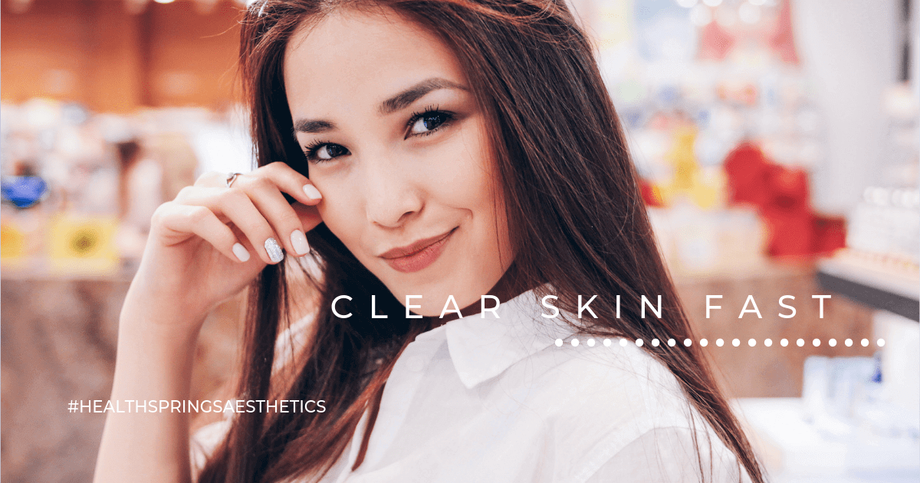The word "hyperpigmentation" describes a skin disorder in which melanin production increases and causes areas of skin to become darker than their surrounding region. The pigment that provides your skin color is called melanin. Usually innocuous, this skin disorder can manifest for a variety of reasons.
The Impact of a Bad Diet on Pigmentation: Maintaining Healthy Skin with Proper Nutrition
A well-balanced diet is essential to achieving healthy skin, critical to looking and feeling our best. Numerous skin issues, including pigmentation issues, can be brought on by a poor diet.
Overproduction of melanin, the pigment that gives our skin its color, causes pigmentation or uneven skin color. The sun, hormonal changes, and a poor diet are some of the things that can cause this overproduction, which requires proper pigmentation treatment Singapore.
Numerous health issues, including pigmentation, can result from a poor diet. The body can become inflamed due to a diet high in processed foods, refined sugars, and unhealthy fats, which can cause various skin issues. Free radicals are released when there is inflammation, damaging skin cells and making more melanin.
White bread, pasta, and pastries, which contain a lot of sugar and refined carbohydrates, can spike insulin levels, which can cause inflammation and more melanin to be produced. As a result, dark spots can form on the skin, especially on the face.
A poor diet can also cause skin problems like acne, wrinkles, dullness, and pigmentation issues. An eating regimen ailing in fundamental supplements, like nutrients A, C, and E, can make the skin defenseless against harm and untimely maturing. A lack of these vitamins can cause various skin issues because they are necessary for healthy skin.
Nutritious Foods to Combat Skin Pigmentation and Discoloration
It might be challenging to get a beautiful complexion when the skin has uneven pigmentation and discoloration.
Although hyperpigmentation is common, there are steps you can take to achieve your pigmentation removal goal. Even better, some foods have been demonstrated to have preventive effects on the skin that can help avoid unintended changes in skin color and pigmentation, which can help create a more even skin tone.
By reading this section, find out which foods to add to your shopping cart if you battle skin discoloration.
Dark-green vegetables:
If you still need to, start including dark greens in your lunches immediately. Carotenoids found in leafy greens, spinach, kale, broccoli, peas, and other dark green vegetables help filter UV rays and lessen oxidative stress in the skin, reducing discoloration.
Therefore, regardless of your preference for greens, you should consume these vegetables if you're worried about skin discoloration and pigmentation.
Tangerine fruits:
What person doesn't enjoy citrus fruits? There's even more justification for you to grab that orange juice glass.
Citrus fruits like oranges, grapefruit, and lemon are all rich in vitamin C and vitamin A, which help your body fight off free radicals, support the formation of melanin, and lessen skin discoloration.
To assist in eliminating discolored skin cells and provide an overall brightening effect, fresh lemon juice can also be applied directly to the skin.
Tomato:
Lycopene, an antioxidant that shields against sun damage and may help prevent freckling and discoloration, is an excellent source of nutrition in tomatoes. It would help if you always used sunscreen as your primary defense against sun spots, but you can't go wrong by including this fruit in your diet.
Salmon:
If you enjoy eating salmon for supper, you're in luck!
Omega 3 fatty acids, abundant in salmon, provide your skin with a healthy dose of hydration and help lessen skin redness. Even though it might not be the answer to all pigmentation problems, it's a fantastic way to treat inflammation and scarring from acne.
Almonds:
Nuts and seeds, like salmon, are brimming with anti-inflammatory qualities that can aid in lessening the skin. Since almonds are rich in magnesium, Omega 3 fatty acids, and Vitamin E, which suppress stress hormones that frequently trigger breakouts, they are particularly healthy for your skin. This makes them a fantastic preventative strategy for individuals who already have acne.
Yogurt:
Yogurt can help reduce skin pigmentation when applied topically, even if it doesn't work as well when consumed. This is so because yogurt contains lactic acid, which encourages the skin to shed dead cells and, over time, lessens skin discoloration and hyperpigmentation.
Applying natural, plain yogurt to your problem areas and letting it rest for 15 to 20 minutes before washing off will help your skin's lightening efforts. Your skin will improve if you repeat this procedure as frequently as you would apply a face mask.
A terrible eating regimen can prompt different medical conditions, including pigmentation issues. To keep up with sound skin and forestall pigmentation issues, it's fundamental to follow an appropriate eating regimen that is wealthy in supplements.
Whole grains, lean protein, fruits, vegetables, and foods high in antioxidants and essential vitamins should all be a part of this diet.







0 Comments